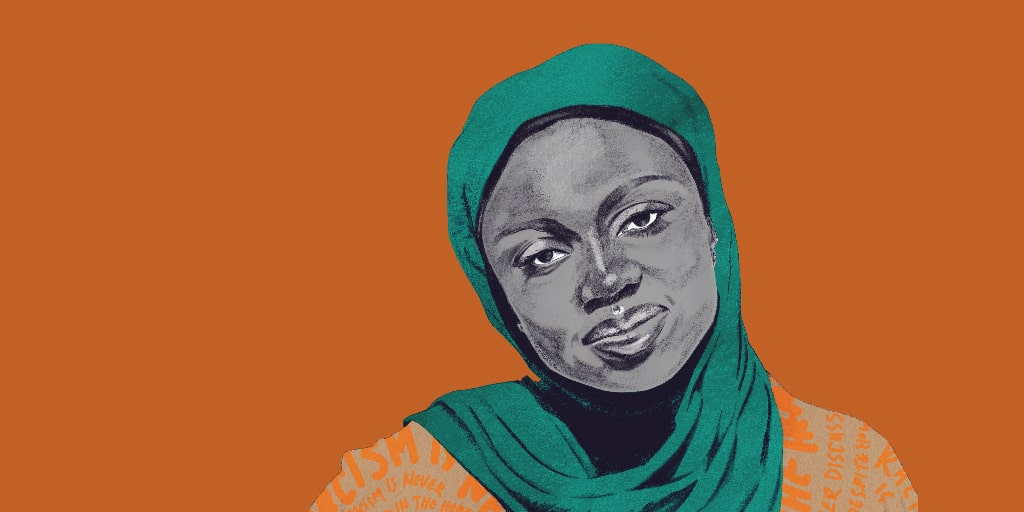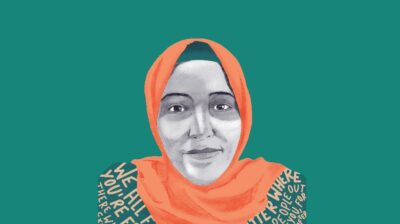We need to talk about Islamophobia
Baisat talks about the Irish experience for people of colour (POC) in dealing with racial slurs, racial profiling and ignorance from non-POCs.

Growing up in Ireland, racism is most definitely a topic that is not talked about as much as it should be. My name is Baisat Alawiye, and I am an Irish Nigerian. I am also Muslim. Racism and Islamophobia are two things that I didn’t realise would ever come with being both of those identities until I was in my late teens. In primary school, most of us deal with racial microaggressions – teachers not learning how to pronounce our names properly, our “weird-smelling” lunches and colouring the people in our pictures in peach crayon because there were no brown ones.
From microaggressions to racial profiling
In secondary school, we deal with teachers stereotyping all of us black people as the “loud ones” or “troublemakers”, and still not remembering how to pronounce our names properly. These problems are just from our school life and the teachers. In everyday life, we deal with racial slurs, racial profiling by the Gardaí and ignorance from non-POC’s (people of colour).
Yet when racism is “taught”, it is only referred to in the past tense – the apartheid in South Africa or slavery in America back in the 1900s. Racism is never discussed in the here and now despite how prominent it is in Ireland in 2022.
Present tense racism
Despite also being Muslim, I don’t seem to suffer from Islamophobia; it’s almost as if I am too busy being black for them to notice that I am also a Muslim woman. Muslim women who are not black seem to be subjected more to Islamophobic abuse. Personally, I have experienced mainly microaggressions and a lot of this is mainly because of lack of education and ignorance in Irish society.
First-hand racism
The first time I experienced direct racism was when I was working. This lady had come to pay for her goods and was clearly having a bad day. She then began to say she “didn’t understand what I was saying” despite my clear Irish accent, implying that I didn’t have good English. When leaving the shop, she told my white co-worker that I probably couldn’t hear her properly with “that rag around my ears” referring to my hijab. I was deeply hurt because a stranger who was having a bad day seemed to take it out on me in a horrible way.
Undercover racism in Ireland
This is the part that scares me the most about Ireland. Racists and racism only seem to come out when they are angry or having a bad day. There are more racists than what meets the eye, waiting for an opportunity to throw the opinion that you’re not fully Irish, even if you are born here, or you are not as capable at working or speaking English properly.
Daily education is key
As Black people, we are “welcomed” in Ireland, but we cannot step out of line, have a say, or make mistakes like normal human beings without being told to “go back to our countries.” Ireland needs a change, especially in the education system. Racism and islamophobia should not be a once a week topic and diversity should not be celebrated once a year. It should be an everyday issue, taken seriously by both school staff and students.
This is part of the Fresh Éire collection of lived experience pieces from young people about living in Ireland, while experiencing racism and navigating identity and belonging.
Feeling overwhelmed and want to talk to someone?
- Get anonymous support 24/7 with our text message support service
- Connect with a trained volunteer who will listen to you, and help you to move forward feeling better
- Whatsapp us now or free-text SPUNOUT to 50808 to begin.
- Find out more about our text message support service
If you are a customer of the 48 or An Post network or cannot get through using the ‘50808’ short code please text HELLO to 086 1800 280 (standard message rates may apply). Some smaller networks do not support short codes like ‘50808’.






